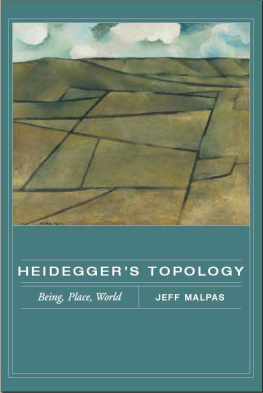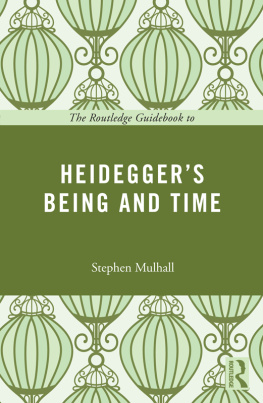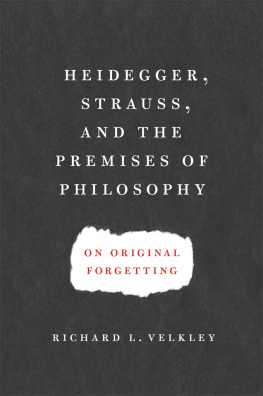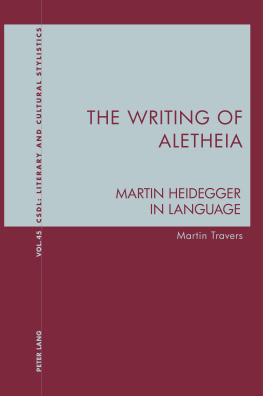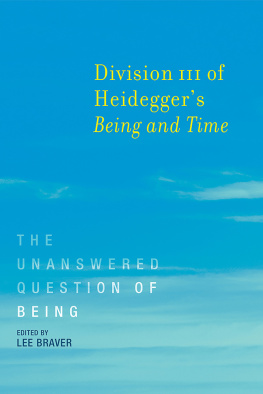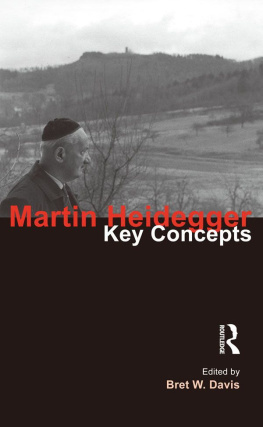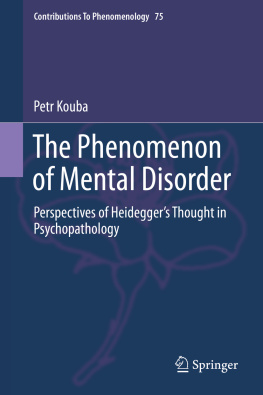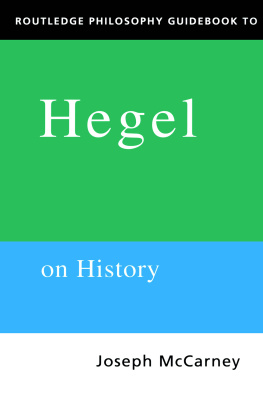Frequently Cited German Texts and Their Abbreviated English Translations
(For a complete list, see Bibliographies: Heideggers German Texts and Their English Translations)
SZ = Being and Time (Macquarrie-Robinson)
GA 2 = Being and Time (Stambaugh)
GA 3 = Kant and the Problem of Metaphysics
GA 4 = Elucidations of Hlderlins Poetry
GA 5 = Off the Beaten Track
GA 6 = Pathmarks
GA 8 = What Is Called Thinking?
GA 9 = Pathmarks
GA 10 = The Principle of Reason
GA 11 = Identity and Difference
GA 12 = On the Way to Language
GA 14 = On Time and Being
GA 15 = Heraclitus Seminar 1966/67 and Four Seminars
GA 17 = Introduction to Phenomenological Research
GA 18 = Basic Concepts of Aristotelian Philosophy
GA 19 = Platos Sophist
GA 20 = History of the Concept of Time
GA 21 = Logic: The Question of Truth
GA 22 = Basic Concepts of Ancient Philosophy
GA 24 = The Basic Problems of Phenomenology
GA 25 = Phenomenological Interpretation of Kants Critique of Pure Reason
GA 26 = The Metaphysical Foundations of Logic
GA 27 = Introduction to Philosophy
GA 29/30 = The Fundamental Concepts of Metaphysics
GA 31 = The Essence of Human Freedom
GA 32 = Hegels Phenomenology of Spirit
GA 33 = Aristotles Metaphysics 13
GA 34 = The Essence of Truth: On Platos Cave Allegory and the Theaetetus
GA 36/37 = Being and Truth
GA 38 = Logic as the Question Concerning the Essence of Language
GA 39 = Hlderlins Hymn Germanien and Der Rhein
GA 40 = Introduction to Metaphysics
GA 41 = What Is a Thing?
GA 42 = Schellings Treatise on the Essence of Human Freedom
GA 45 = Basic Questions of Philosophy: Selected Problems of Logic
GA 50 = Introduction to PhilosophyThinking and Poetizing
GA 51 = Basic Concepts
GA 53 = Hlderlins Hymn The Ister
GA 54 = Parmenides
GA 56/57 = Towards the Definition of Philosophy
GA 58 = Basic Problems of Phenomenology: Winter Semester 1919/20
GA 59 = Phenomenology of Intuition and Expression
GA 60 = Phenomenology of Religious Life
GA 61 = Phenomenological Interpretations of Aristotle
GA 63 = Ontology: Hermeneutics of Facticity
GA 64 = The Concept of Time: The First Draft of Being and Time
GA 65 = Contributions to Philosophy: Of the Event
GA 66 = Mindfulness
GA 71 = The Event
GA 77 = Country Path Conversations
GA 79 = Bremen and Freiburg Lectures
GA 85 = On the Essence of Language
APPENDICES
1. The Existential Components of Openness and Care
2. , , and lumen naturale in Aristotle and Aquinas
3. Greek Grammar and Is-as-Having-Been
APPENDIX 1
The Existential Components of Openness and Care
T he haste with which Being and Time was written is perhaps nowhere more obvious than in Heideggers various lists of the existential components of Erschlossenheit (disclosedness), das Da (the open, or openness), In-der-Welt-sein (engagement with meaning), and Sorge (care). In the later pages of the book Heidegger clearly states that Rede (his tentative rendering of in Being and Time) names the whole of ex-sistence when he writes, Only in terms of the temporality of Redethat is, of Dasein in generalcan we clarify how meaning arises. Earlier he had argued that ex-sistence, as open, is structured by Befindlichkeit and Verstehen, and that this bivalent openness is determined by Rede/ (see below, nos. 1.1 through 2.3), and this would seem to be a correct statement of the structure of openness.
However, this clear view begins to fog up whenever Heidegger runs together Befindlichkeit, Verstehen, and Rede as if they were three co-equal components of the open (see nos. 2.42.7).
Heidegger gets back on sure ground when he defines Sorge in terms of the bivalence of (1) Existentialitt-and-Faktizitt on the one hand and (2) Sein bei (which is Verfallenheit in everydayness) on the other, and when he says that this unitary bivalent structure is articulated by Rede. (See 3.1 through 4.1.)
But things get wobbly again when Heidegger runs together Befindlichkeit, Verstehen, Verfallen, and Rede as if they were four co-equal components of disclosedness (nos. 4.2 and 4.3).
1. Only Befindlichkeit and Verstehen
1.1: In Befindlichkeit and Verstehen we see the two equiprimordially constitutive ways of being the open [das Da]. SZ 133.2223 = 171.38172.1.
1.2: The basic existentials that constitute the being of the openthat is, the disclosedness of the engagement-with-meaningare Befindlichkeit and Verstehen. SZ 160.2729 = 203.1719.
1.3: In its being, [ex-sistence] is disclosed to itself. Befindlichkeit and Verstehen constitute the kind of being of this disclosedness. SZ 182.78 = 226.2931.
1.4: Ex-sistence is constituted by disclosedness, that is, by a befindliches Verstehen. SZ 260.3132 = 304.3637.
Redementioned in conjunction withBefindlichkeitandVerstehen
2.1 Befindlichkeit and Verstehen are determined equiprimordially by Rede. SZ 133.2627 = 172.45.
2.2: Rede is existentially equiprimordial with Befindlichkeit and Verstehen. SZ 161.56 = 203.34. Italicized in the German.
2.3: Rede is constitutive for the being of the open, that is, for Befindlichkeit and Verstehen. SZ 165.1213 = 208.2930.
2.4: The theme [of this chapter] has been the ontological constitution of the disclosedness that essentially belongs to ex-sistence. The being [of that disclosedness] is constituted in Befindlichkeit, Verstehen, and Rede. SZ 180.1214 = 224.2830.
2.5: Disclosedness is the basic character of ex-sistence according to which it is its openness [sein Da]. Disclosedness is constituted by Befindlichkeit, Verstehen, and Rede. SZ 220.3134 = 263.1921.
2.6: [Disclosedness] is constituted by Befindlichkeit and Rede along with Verstehen. SZ 295.3233 = 342.1314.
2.7: The third essential moment of disclosedness is Rede. SZ 296.6 = 342.26.
Existentialitt, Faktizitt, andSein bei(orVerfallen)
3.1: The basic ontological characteristics of [ex-sistence] are Existentialitt, Faktizitt, and Verfallensein. SZ 191.2122 = 235.3638.
3.2: Being-already-ahead-of-itself-in-the-world essentially includes ones verfallende Sein bei [things]. SZ 192.3133 = 237.57.
3.3: [Care] means being-ahead-of-itself-already-in-(the-world) as Sein bei (things encountered within the world). SZ 192.3637 = 237.1112.
3.4: The unity of the constitutive moments of careExistentialitt, Faktizitt, and Verfallenheit... SZ 316.3334 = 364.2829.
Verstehen, Befindlichkeit, Verfallen, andRede
4.1: The full disclosedness of the open, which is constituted by Verstehen, Befindlichkeit, and Verfallen, achieves articulation through Rede. SZ 349.56 = 400.1618.
4.2: This disclosedness, as a basic state of that entity which we ourselves are, is constituted by




